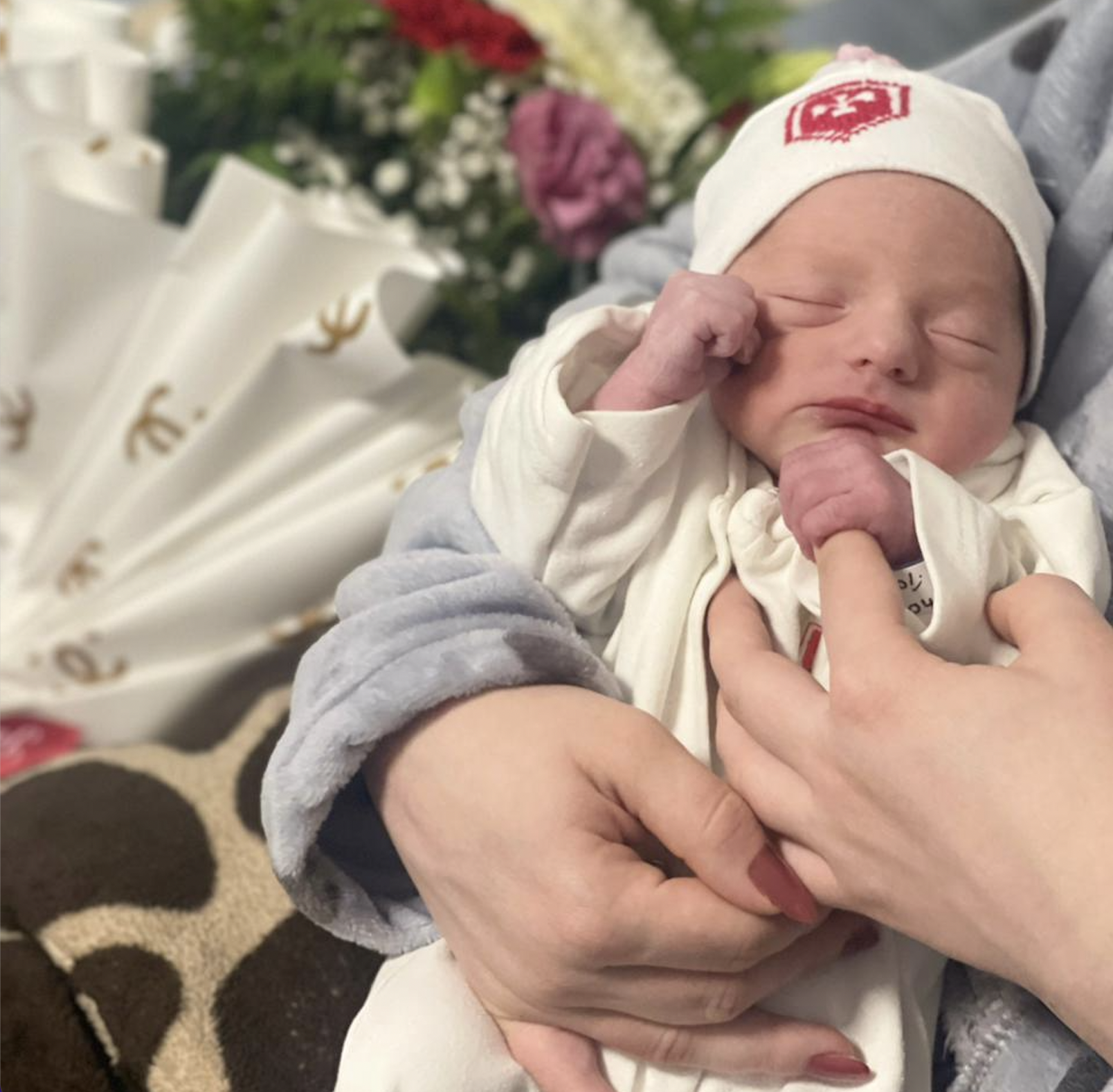Rome 9 January 2023 – The 100,000th child has been born at the Holy Family Hospital in Bethlehem, a little boy named Muhamad. The staff had been waiting many days for this important moment, which took place on the morning of 6 January 2023. The infant’s parents are from Hebron; they chose to give birth to their son at the Holy Family Hospital because of its excellent reputation and for the warmth and kindness of the obstetric personnel, composed of Muslim and Christian doctors and nurses.
The maternity facility run by the Order of Malta since 1990 – specialised in at-risk pregnancies and complicated births – offers it services to southern Palestine, including the Bethlehem and Hebron governorates. With its 18-bed neonatal intensive care unit, it is the only hospital in the region for delivering and treating preterm babies. Like all the Order of Malta’s activities, the hospital is open to everyone without distinction of belief or condition. All services are provided at reduced cost or completely free of charge.
The NICU regularly takes care of babies born prematurely, some after only 25 weeks of gestation, who are assisted for over 90 days. The Pre/Postpartum unit has 50 beds and there is a nursery for the care and monitoring of infants born without obvious complications.
In 2022, 4,646 babies were born in the hospital, 444 of which were treated in the neonatal intensive care unit.
“Since March 2020, Bethlehem has been facing a serious economic crisis aggravated by the Covid pandemic. What we are seeing,” explains Fra’ Alessandro de Franciscis, Grand Hospitaller of the Order of Malta, “is a surge in the number of preterm babies, caused by increased poverty, stress and anxiety.”
Whilst the Covid pandemic has been a worldwide health crisis, in Bethlehem it has become an ongoing humanitarian crisis. Bethlehem’s workforce is dependent 90% on tourism and pilgrimages. The closure of this sector in March 2020 meant many people were without pay, with the stress causing health complications. The economic recovery is very slow and it is estimated that it has only returned to 15% of 2019 levels. Families have had to sell their homes, cars and land to make ends meet and now find themselves without resources. Pregnant women are malnourished and babies are born smaller and with greater complications. Poor nutrition increases the possibility of birth defects and the need for neonatal intensive care.
The hospital directly or indirectly employs 191 Palestinians. Since it is a university hospital, staff training and updating is continuous. Treatment standards and results are in line with those of Western European countries. There are 25 doctors, including 10 interns, 53 midwives, 43 nurses and 4 technicians. The hospital has a laboratory and a pharmacy operating 24 hours a day. It also serves as a training facility for midwives, nurses and paramedical staff. Last year it trained over 200 nurses and midwives.
The hospital’s outpatient clinics include the Well Women Clinic – one of a kind – for menopausal women, the gestational diabetes clinic and a mobile medical unit that regularly serves isolated villages and communities in remote desert areas. The mobile clinic has an obstetrician-gynaecologist, a paediatrician and a nurse and also offers pre- and post-natal treatment and paediatric care.
The hospital gives priority to the neediest. It employs two social workers for the psychosocial needs of patients and families and helps patients pay the costs. The services of the mobile clinic are provided free of charge, as are the first visits to the Well Women Clinic.
Refugees represent 45% of patients, as well as 21% of hospital staff. 71% of the staff are women.
The hospital is currently engaged in an expansion and renovation project involving the replacement of two operating theatres and the addition of a convalescence department, accommodation for overnight stays for resident doctors, classrooms for teaching staff and medical professionals and a waiting room with cafeteria for visitors and patients.
Twenty-three years ago, on his historic visit to the Holy Land, Pope John Paul II preached from the Church of the Annunciation in Nazareth declaring the Holy Family Hospital a priority of the Church for the new millennium. The Order of Malta continues to keep its promise to St. John Paul II, ensuring that the hospital remains a beacon of hope for all those seeking care and work. 100,000 infants represent half of the population of Bethlehem.










